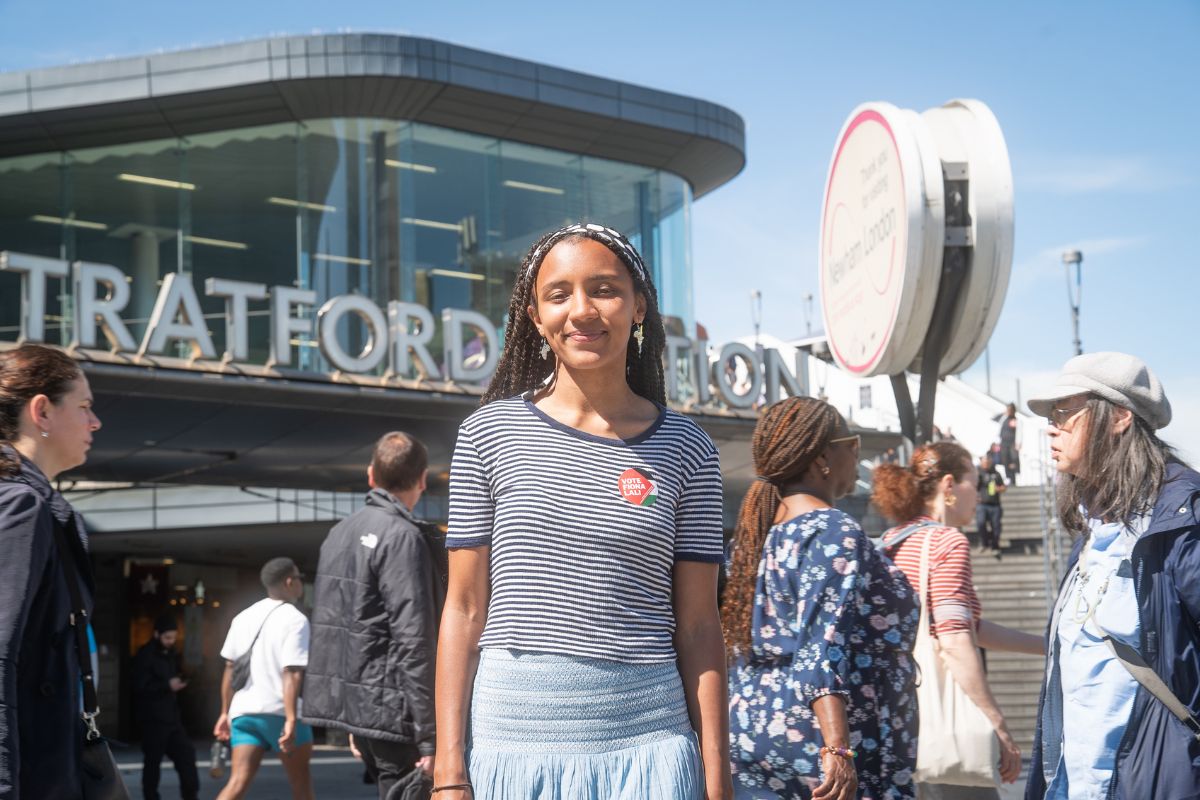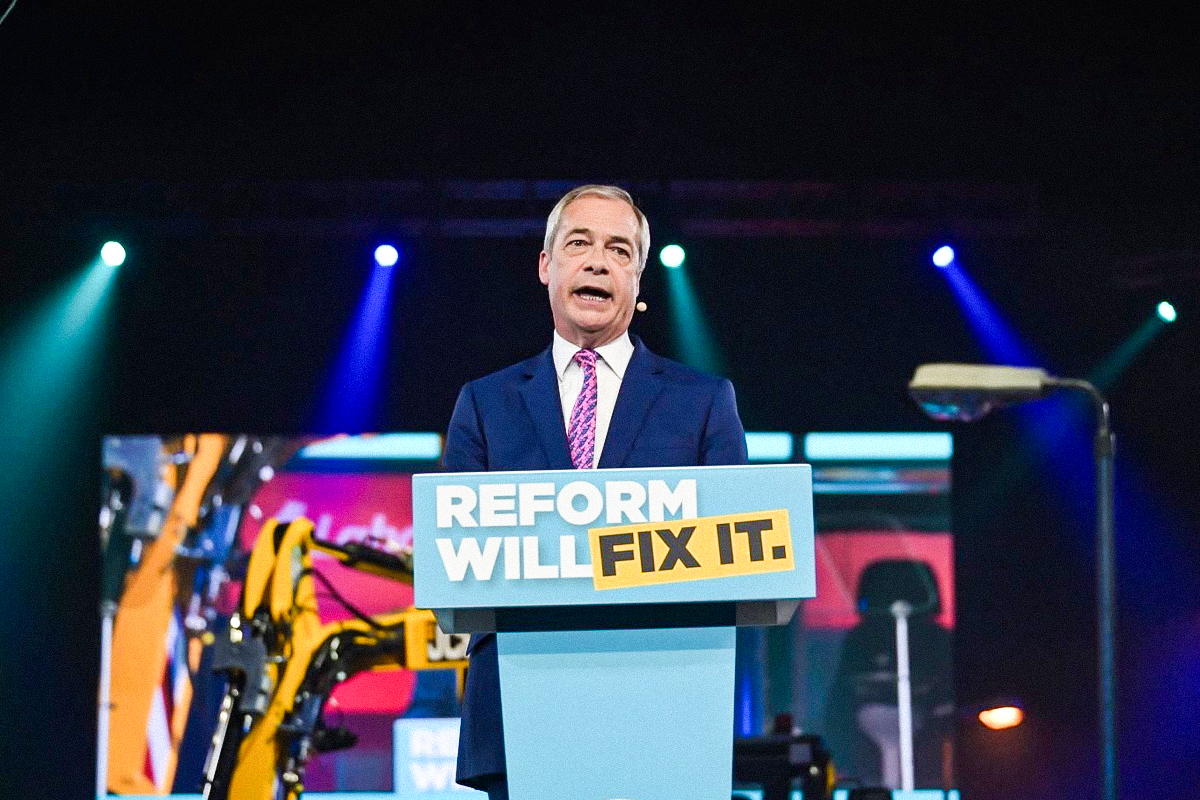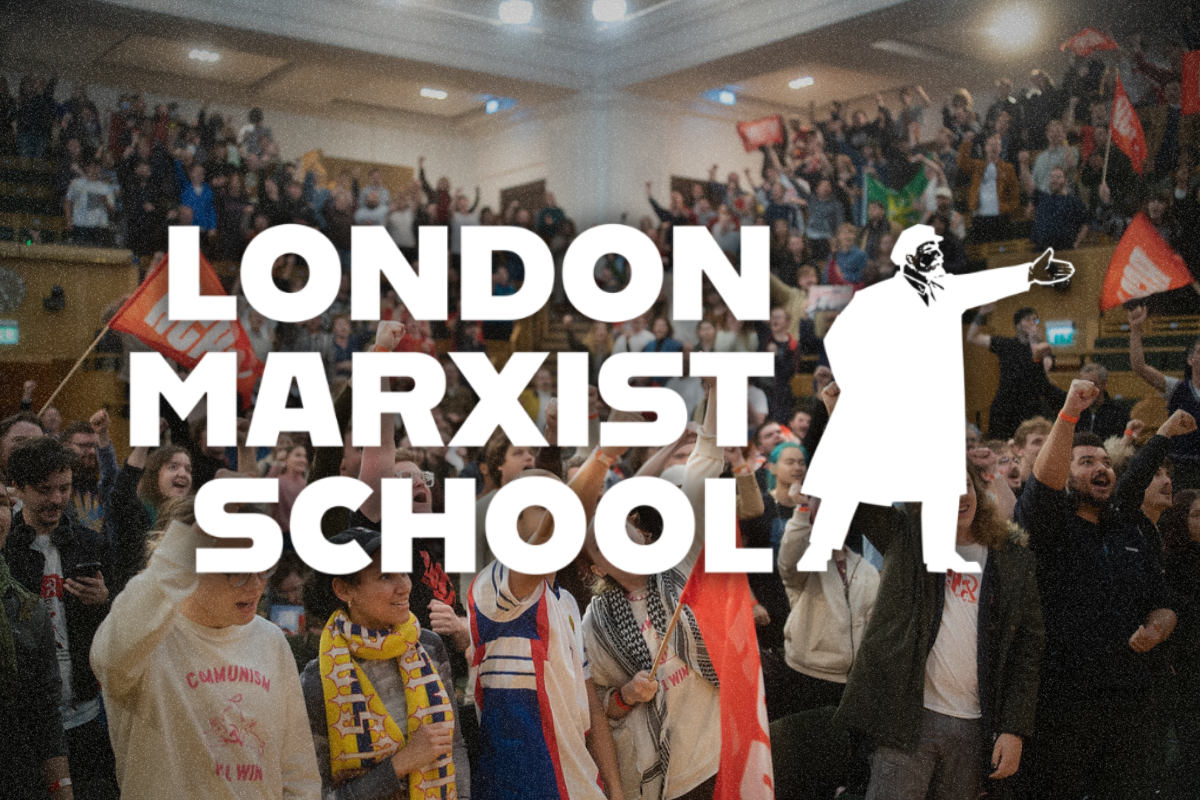Independent Candidate (screening this Sunday in central London) is the third in what filmmaker Teilo Vellacott considers a trilogy, after Truce and On the Ground.
These are not the first films he’s made, but they are all in the same style: stripped-back, observational documentaries.
Stepping back
Discussing his experience filming Truce, which captures the negotiations between the Colombian government and the Revolutionary Armed Forces of Colombia (FARC) in Havana, Teilo explained how he settled on this style:
“I had a microphone on one of these Colombian women from the FARC. I was standing really far back. And in a way, they kind of forgot about me. They just had this incredible little convo where they were just chatting and like… it was all very human, it was all very spontaneous. They were just chatting about their lives, off the top of their head. It was one of my favourite scenes in the film.
“After that, I just started to fall into that way of working. It’s kind of creative, philosophical, and it’s also technical because normally there’s only me, my camera and one mic. So I try to be really unobtrusive, not to intervene.
“What I do is, early on in a scene, I just ask someone’s permission to put the mic on. Then I can just step back and let whatever happens happen.
“Then… normally in any interaction between humans, there’s a moment of humour or conflict or disagreement or… something spontaneous that you can never predict. And that’s why I like this style of documentary so much, because it’s just stranger than fiction, man, it’s incredible. And those little moments that I feel so privileged to be able to capture…. I feel you could do that in any scenario, because humans are so complicated and wonderful. So if you’re able to capture a bit of that essence, it translates really well.”
He compared this way of working to traditional documentaries:
“I’m trying to take myself, to an extent, out of the process, even though, of course, I’m not neutral, because that’s impossible.
“A, I have opinions; B, I have something I’m trying to say, and then I’m making decisions the whole way through. But to an extent, I’m trying to reduce that, because I think a lot of documentaries are made by people who say, right, I think this, and I want to say that… They have a discourse that they’re trying to translate via their subjects. I don’t think there’s anything wrong with that.
“Also, I think the reality of a lot of commercial filmmaking is there’s not a lot of time, there’s a lot of pressure, and people want to know in advance what they’re paying for. But because I’ve been fully independent in most of these films, I can kind of avoid those interventions in what I’m doing, I can kind of make work how I like to work.”
View this post on Instagram
Turning a lens towards the world
Teilo’s trilogy of films are not only linked stylistically, but also in that they follow activists and revolutionaries. He explained what attracted him to these subjects:
“I’ve always been someone that was politically conscious. I’m socially aware and all that, and I’m very much part of the world that I inhabit. So, I just wanted to contribute somehow, or turn that lens towards the world that I’m seeing around me, which was here in London, and all of the things that I think are important, like the injustice and the resistance.
“Always with a focus on people… I suppose what attracts me is, not to be cliched or cheesy, but the human side of this, and how ultimately politics and economics affect everyday people’s lives.
“And on top of that, just to show the reality and to celebrate the challenge and struggle that people go through when they have made the decision to take a stand and try and somehow, in big or small ways, change the world.
“Because I want to use my skills… to give a little bit of a platform to those struggles, in the only way that I know how to do, which is with the camera, and also with a certain approach… I don’t need a big budget or anything like that.”
Teilo explained that, initially, he had planned to make a film about older activists, demoralised by the prospect of Starmer’s Labour coming to power. However, that changed when he came across Fiona’s interview with Suella Braverman. He got in touch with the Revolutionary Communist Party (RCP) and, to his surprise, ended up making a “super optimistic film”.
Initially, he had intended to make the film entirely about Fiona, but, as he filmed more and more of the campaign, that changed:
“Before I started making Independent Candidate I saw this film called Light Years. It is a portrait of this Argentinian film director who is like a total master, someone who I love. I thought it was so cool because it was like a portrait of a master at work, of an artist who happened to be a filmmaker, that could be just a really insightful, interesting portrait of anyone.
“So when I was thinking about making this film, initially the idea was that I would focus entirely on Fiona. But then, as the film progressed, I became interested in all the people around her…
“She’s the main protagonist of the film, she’s the sort of driving character, but actually it’s just as much about everyone else.
“There was also a conscious political decision there because I do think that within contemporary left-wing politics, let’s say, in Latin America, there is a critique of this idea of the great leader. I find that problematic, and actually it’s not realistic because it’s never just the one person, it’s always a movement of people.
“It’s actually the people out there, the activists all over the country or all over the borough, who are doing the hard work and supporting the movement. So in a way, they’re as important. It’s not just about the individuals, it’s about the movement of people…
“But I would just say, I was incredibly impressed by Fiona. I found her inspiring. I support her politics. She’s very astute, eloquent, a great speaker, great energy. So I’m not trying to take anything away from that or from her.
“I was very aware that I didn’t want to diminish her role, but also in the end, a lot of the scenes that I filmed, she was doing something else, and I was with other people. So I wanted to maintain that balance. But there was also something else behind it, because in everything you do, there is a thought process.”
Capturing humanity
Teilo explained his thinking behind some of the scenes in the film. Throughout, he emphasised that his aim was to capture the humanity, both of the activists and protagonists, and of the passers by, the people of Stratford and Bow.
“That scene in the beginning where it introduces the film and everyone’s looking on their phone, that was one of the only scenes that I’d thought about in advance. I was basically saying that: this campaign kind of erupted off that viral moment that people experienced on their phone… It was also introducing us to the world where the campaign took place, in East London, Stratford, and like, ‘welcome to Stratford’…
“But then, on top of that, it was also ultimately showing there… and this is the same thing that I showed in Truce, but more so here… it was showing that the whole point of what you guys were trying to do, in my opinion, was to improve the lives of normal people who live in the borough. They had to be part of it too, because they were the characters. They were, what everything’s about, because it’s not just abstract politics, it’s actually, like, trying to improve people’s lives, and they need it, you know?
“There’s the scene where you guys are doing the hustings. Rather than just showing the speeches and the kind of, like, climax or whatever… it was showing the reality of how these things come together.
“Even getting on the bus… all of the discussions that happened before and after, and the fact that it’s difficult, that there’s not a lot of money, and it’s nerve-wracking.
“Maybe [Fiona] felt a bit nervous. And that’s just how probably everyone experiences those things… But you’ve seen these propaganda films by the Labour Party, and you see these fucking Starmers strolling around. It’s just so fake!
“The end result of showing the humanity behind all of this, and the reality is that it feels authentic and real. People can connect to that. It’s relatable. But also it’s just, like, the truth, man. For me, those moments are more interesting than the speeches, because it’s real people, like, doing real things.
View this post on Instagram
Revolutionary activism
He also described a scene captured in the film where RCP activists visited a T-shirt printing shop and spent hours talking to the owners about communism, revolutionary history, and strategy.
“It was giving me… At the time, I was, like, wow, I’m getting, like, this timeless moment where, like, cadres are out. It could have been in, like, fucking St. Petersburg in, like, 1917 or whatever, you know, in Mexico, you know. Cuba. Going out and speaking to people, and listening and having discussions.
“It was, like, this real revolution from the grassroots. Revolutionary activism. And I was, like, wow, this is fucking, like, super interesting.”
The film makes a point of not focusing on the campaign itself. There are no big rallies or marches, very few speeches, and Fiona’s result is not shown in the film.
The action consists largely of revolutionary communists – with varying degrees of success – doing the work they would do any week: selling The Communist and talking to people about politics.
In fact, though Teilo was at the afterparty – the culmination of the campaign, which took place on the night the result was announced – he decided not to film it. He explained why:
“Initially, I had planned to do it. It would have made sense from a classical perspective just to show the result. You’re planning it out, thinking you might show some kind of emotion associated with winning or losing or whatever.
“But something inside me just didn’t want to do that. I think what that reflected was that I genuinely felt that it didn’t really matter what the result was. Yes, it was important. But I actually thought that you guys had already won.
“Regardless of the final result in the election, you achieved so much. It’s incredible what you guys managed to do in that short amount of time… and the amount of people you met!
“When I got to that party, I was so involved. When you take out a camera, you have to detach yourself and go back into observational mode. I had just got to this point where I felt like I was one of you guys, to an extent, and… I made that choice not to, and I think I’m happy because, actually, what happens is that it finishes how it starts. It’s almost suggesting that the struggle continues.”
Teilo was involved in the campaign almost from the beginning. He accompanied activists of the RCP to recruitment stalls, door-knocking sessions, and rallies, as the film captures. He explained how his attitude towards the party developed over the course of the project.
“Throughout the process of making the film, and particularly in the edit, I just came to really feel so endeared towards everyone in the film, everyone in the movement. Their charm. They’re so sweet and sincere and dedicated, and putting themselves on the line. It’s just inevitable that you fall in love with the characters in the film, and I hope that sort of warmth came through. Because that’s what it’s about, it’s not a cold-hearted process; it’s about connecting with people and doing the activism for the right reasons.
“Because you guys believe in changing the world, and you’re doing that, not for the sake of it, but you’re doing it to address all of the problems that this system is creating. I think it’s very necessary…
“I couldn’t honestly say that I was an impartial observer because, really, I was 100 percent backing what you guys were trying to achieve. Even though politically, I wouldn’t necessarily describe myself as a communist. But I didn’t really engage in that. That wasn’t necessarily important because I do support pretty much 99 percent of what you guys stand for and the instincts and also the problems that were being identified. So throughout the process, that just kind of deepened…
“I was impressed by the dedication, the organisation, the solidarity. In Spanish there’s this word voluntad, which means… everyone was giving so much of their time and their energy, and it was all for such an extremely important cause. And you’re all quite young as well. I found all of those things inspiring and interesting and important.”
The film, which shows the ups and downs of revolutionary activism, is certainly not propaganda. It captures revolutionaries being ignored, papers blowing off tables, as well as brilliant political conversations with passersby. Teilo summarised his intentions in making and screening a film that honestly depicts the work of the RCP, ‘warts and all’:
“The whole point is that anyone – ideally people who don’t necessarily consider themselves political – can see that film and somehow they might start to question something or feel inspired.
“It was always clear that I wasn’t trying to make a film for you guys necessarily. Yes, during the campaign, I was giving material that was good for promoting what we were trying to achieve with the campaign… But I never really set out to make a piece of classic propaganda.
“If anything, it’s probably better that it wasn’t. Because that wouldn’t land. Because you’re trying to reach a mass audience. Bring everyone into it…
“Now it’s just about getting the film out to as many people as possible… I think the more people that see it, it will definitely ignite conversations. It will get the message out there. It will spark debate, which is important to have, and it will maybe reach people who might not have come across these ideas in a way that they can relate to.”
View this post on Instagram
Role of artists
Finally, Teilo explained how he sees his role as a politically conscious artist in this epoch of capitalist crisis and social polarisation.
“I think everyone has to have something to say. You need to have a perspective. In this context… of major inequality and injustice in this country… the incredible situation that the world finds itself in, on the brink of authoritarianism, environmental disaster, rampant inequality, war.
“Not even just from an artistic point of view, but as a human, you have to take a position. What springs from that is that, as an artist or filmmaker or whatever, whatever you have at your disposal, you need to use it to contribute somehow.
“It needs to shine a light somewhere and do what you can to talk to that or make a small change somehow. Even if it’s just by painting a picture or going on a demonstration or something… First, you need to understand what’s going on. Take a position…
“Things are so extreme now, you can’t opt out. You can’t just ignore it. Therefore, you need to try and do something.”
Get tickets to the Sunday 9 November screening of ‘Independent Candidate’ in central London.
To find out more about Teilo’s work, visit his website.






